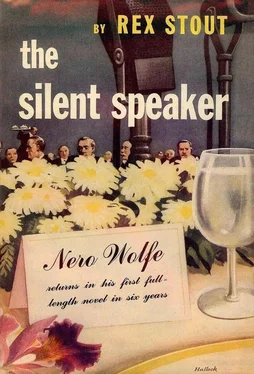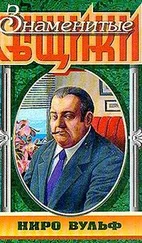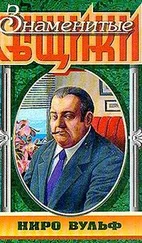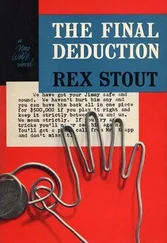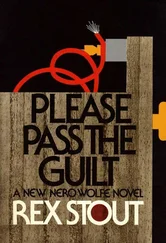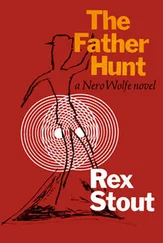I had made a close and prolonged study of Wolfe’s attitude toward women. The basic fact about a woman that seemed to irritate him was that she was a woman; the long record showed not a single exception; but from there on the documentation was cockeyed. If woman as woman grated on him you would suppose that the most womany details would be the worst for him, but time and again I have known him to have a chair placed for a female so that his desk would not obstruct his view of her legs, and the answer can’t be that his interest is professional and he reads character from legs, because the older and dumpier she is the less he cares where she sits. It is a very complex question and some day I’m going to take a whole chapter for it. Another little detail: he is much more sensitive to women’s noses than he is to men’s. I have never been able to detect that extremes or unorthodoxies in men’s noses have any effect on him, but in women’s they do. Above all he doesn’t like a pug, or in fact a pronounced incurve anywhere along the bridge.
Mrs. Boone had a pug, and it was much too small for the surroundings. I saw him looking at it as he leaned back in his chair. So he told her in a gruff and inhospitable tone, barely not boorish:
“I have ten minutes to spare, madam.”
Entirely aside from the nose she looked terrible. She had had a go at her compact, but apparently with complete indifference to the result, and anyway it would have been a job for a make-up artist. She was simply all shot and her face had quit trying to do any pretending about it.
“Naturally,” she said, in a voice that was holding up much better than the face, “you’re wondering why I’m here.”
“Naturally,” Wolfe agreed.
“I mean why I came to see you, since you’re on the other side. It’s because I phoned my cousin this morning and he told me about you.”
“I am not,” Wolfe said curtly, “on the other side or any side. I have undertaken to catch a murderer. Do I know your cousin?”
She nodded. “General Carpenter. That was my maiden name. He is my first cousin. He’s in a hospital after an operation, or he would have come to help me when my husband was killed. He told me not to believe anything you said but to do whatever you told me to do. He said that you have your own private set of rules, and that if you are working on a case of murder the only one that can really rely on you is the murderer. Since you know my cousin, you know what he meant. I’m used to him.”
She stopped, looked at me and back at Wolfe, and used her handkerchief on her lower lip and at the corners, which didn’t improve things any. When her hand went back to her lap it was gripping the handkerchief as if it was afraid that someone was planning to snatch it.
“And?” Wolfe prompted her.
“So I came to see you to get some advice. Or maybe I ought to say make up my mind whether I want to ask your advice. I have to get some from somebody, and I don’t know—” She looked at me again, returned to Wolfe, and made a gesture with the hand that wasn’t guarding the handkerchief. “Do I have to tell you why I prefer not to go to someone in the FBI or the police?”
“You are under no compulsion, madam, to tell me anything at all. You’ve already been talking three or four minutes.”
“I know. My cousin warned me that you would be incredibly rude. — Then I might as well come right out and say that I think I am responsible for the death of Phoebe Gunther.”
“That’s an uncomfortable thought,” muttered Wolfe. “Where did you get it?”
“That’s what I want to tell you, and I suppose I’m really going to or I wouldn’t have come here, but while I was sitting here waiting I got up to leave a dozen times and then sat down again. I don’t know what to do and last night I thought I was going crazy. I always depended on my husband to make important decisions. I don’t want to tell the police or the FBI because I may have committed some kind of a crime, I don’t know. But it seems silly to tell you on account of the way my husband felt about the NIA, and of course I feel the same way about them, and you’re working for them, you’re on their side. I suppose I ought to go to a lawyer, and I know lots of lawyers, but there doesn’t seem to be one I could tell this to. They all seem to do all the talking and I never understand what they’re saying.”
That should have softened Wolfe up. He did get a little more receptive, taking the trouble to repeat that he wasn’t on any side. “For me,” he stated, “this is not a private feud, whatever it may be for others. What was the crime you committed?”
“I don’t know — if it was one.”
“What did you do?”
“I didn’t do anything. That’s the trouble. What happened was that Miss Gunther told me what she was doing and I promised her I wouldn’t tell anyone and I didn’t, and I have a feeling—”
She stopped. In a moment she went on, “That isn’t true, I haven’t just got a feeling. I’m sure.”
“Sure of what?”
“I’m sure that if I had told the police what she told me she wouldn’t have been killed. But I didn’t tell, because she explained that what she was doing was helping the BPR and hurting the NIA, and that was what my husband would have wanted more than anything else.” The widow was staring at Wolfe’s face as if she were trying to see inside. “And she was perfectly correct. I’m still making up my mind whether to tell you about it. In spite of what you say, there’s my husband’s side and there’s the other side, and you’re working for the NIA. After I talked with my cousin I thought I’d come and see what you sounded like.”
“What do I sound like?”
“I don’t know.” Her hand fluttered vaguely. “I really don’t know.”
Wolfe frowned at her in silence, then heaved a sigh and turned to me.
“Archie.”
“Yes, sir?”
“Your notebook. Take a letter. To be mailed this evening so it will be delivered in the morning. To the National Industrial Association, attention Mr. Frank Thomas Erskine.
“Gentlemen: The course events have taken obliges me to inform you that it will be impossible for me to continue to act in your behalf with regard to the investigation of the murders of Mr. Cheney Boone and Miss Phoebe Gunther. Therefore I enclose herewith my check for thirty thousand dollars, returning the retainer you have paid me and ending my association with you in this matter. Sincerely.”
I made the last scratch and looked at him. “Do I draw the check?”
“Certainly. You can’t enclose it if it hasn’t been drawn.” Wolfe’s eyes moved to the visitor. “There, Mrs. Boone, that should have some effect on your reluctance. Even accepting your point of view, that I was on the other side, now I am not. What did Miss Gunther tell you she was doing?”
The widow was gazing at him. “Thirty thousand dollars?” she asked incredulously.
“Yes.” Wolfe was smirking. “A substantial sum.”
“But was that all the NIA was paying you? Just thirty thousand? I supposed it was twenty times that! They have hundreds of millions — billions!”
“It was only the retainer,” Wolfe said testily. The smirk was gone. “Anyway, I am now a neutral. What did Miss Gunther tell you?”
“But now — but now you’re not getting anything at all!” Mrs. Boone was utterly bewildered. “My cousin told me that during the war you worked hard for the government for nothing, but that you charge private people outrageous prices. I ought to tell you — if you don’t know — that I can’t afford to pay you anything outrageous. I could—” she hesitated. “I could give you a check for a hundred dollars.”
“I don’t want a check.” Wolfe was exasperated. “If I can’t have a client in this case without being accused of taking sides in a sanguinary vendetta, I don’t want a client. Confound it, what did Miss Gunther tell you?”
Читать дальше
